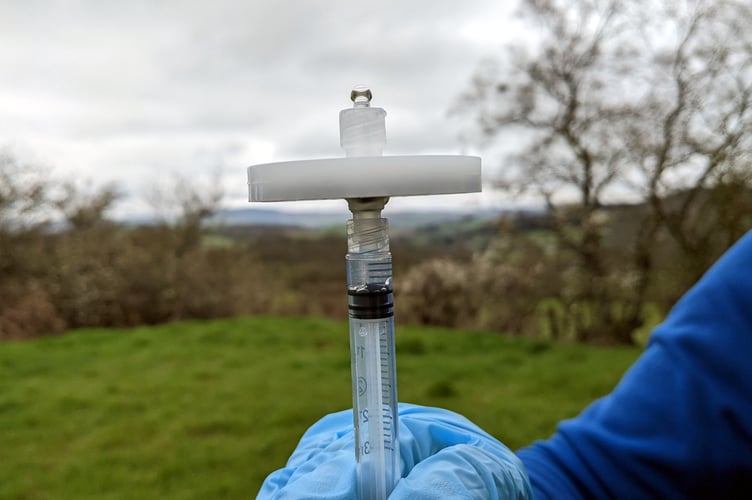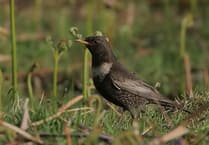Conservationists are carrying out a survey of one of the world’s most critically endangered species - the Freshwater Pearl Mussel - across the River Irfon catchment, a tributary of the River Wye, which stretches from Abergwesyn to Builth Wells.
A Special Area of Conservation designated for its exceptional freshwater biodiversity, the River Irfon catchment is one of the few remaining places in England and Wales where the Freshwater Pearl Mussel can still be found. In the first study of its kind, national wildlife conservation charity Freshwater Habitats Trust will survey 80 randomly selected sites across a 290 square kilometre area to identify hotspots for the endangered species.
Freshwater Habitats Trust is conducting the research using cutting-edge eDNA techniques. This identifies which species are living in or visiting a particular waterbody by detecting invisible traces of an animal’s DNA released into the environment from its shed skin, hair, faeces or eggs. As well as identifying hotspots for Freshwater Pearl Mussel, the survey will reveal which other species are found in the catchment.
Freshwater Habitats Trust project officer Catherine Hughes said: “The Freshwater Pearl Mussel is critically endangered due to the poor state of most rivers. To protect this species from extinction, we need to know more about the few places where it still survives. Freshwater Pearl Mussel is also an important ‘indicator species’: a healthy population shows that a river and its wildlife are doing well”.
“The River Irfon catchment is one of Britain’s wildest and most natural freshwater landscapes but it faces pressure from pollution and changes in land use. We are very grateful to the landowners who are supporting us to carry out these surveys. It is important that we capture this data now so that we can find out where the Freshwater Pearl Mussel is living and protect these habitats to provide this endangered species with a future.”

Freshwater Habitats Trust CEO Professor Jeremy Biggs said: “Through our strategy to build the Freshwater Network across England and Wales, we are focusing on protecting the very best habitats to reverse the decline in freshwater biodiversity”.
“With its clean waters, the Irfon catchment includes a huge network of ponds, streams and wetlands, as well as the main River irfon itself, that provide habitats for a rich variety of freshwater wildlife.
“These surveys will help us to understand more about what we can do to protect the catchment’s high quality habitats for Freshwater Pearl Mussel and other species.”

Geraint Watkins, local farmer and forester, and Chairman of the Irfon Catchment Resilient Freshwater Habitats project said: “For generations, our rural communities have worked together to support our environment and the wellbeing of its inhabitants. Through this project, we’re continuing that journey together, by collecting and sharing local information so that we can continue to look after the Irfon catchment.”
With the support of the Welsh Government’s Sustainable Management Scheme, Freshwater Habitats Trust is working with local communities to protect the freshwater and wetland habitats of the River Irfon catchment.
About the Freshwater Pearl Mussel (Margaritifera margaritifera)
• Freshwater Pearl Mussels live in rivers with exceptionally clean water.
• Individuals can live for over 100 years.
• Baby pearl mussels live harmlessly in the gills of trout and salmon until they are large enough to drop off of the fish and begin life in riverbed gravels.
• Freshwater Pearl Mussels are ‘filter feeders’, which can help to clean up the water.
• Once widespread, the Freshwater Pearl Mussel is now one of the most critically endangered animals in the world.




